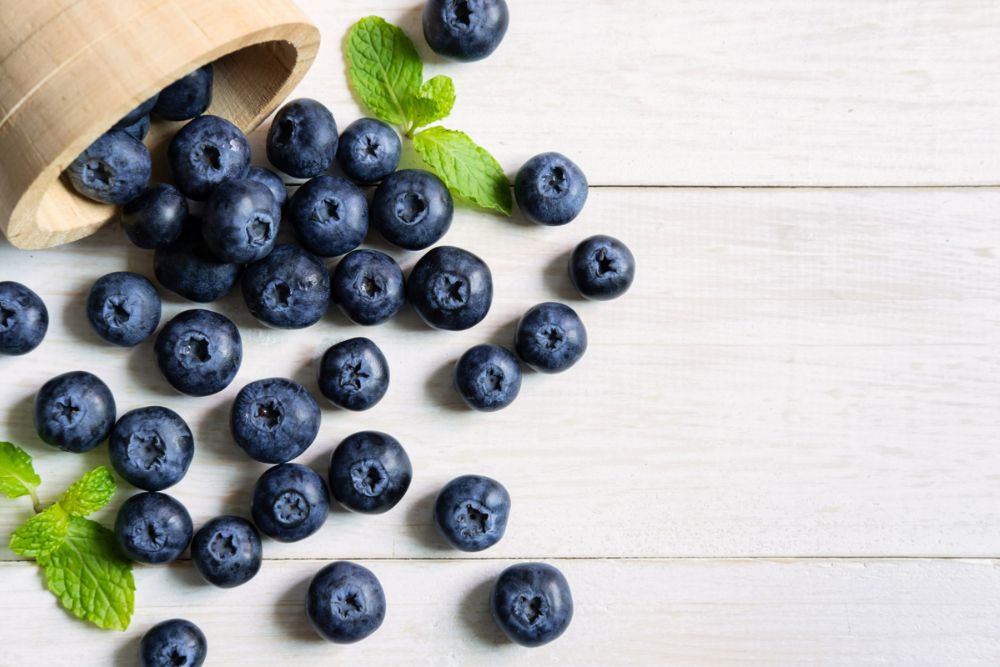The “wild cousin” of blueberry, sweet and tangy bilberries (Vaccinium myrtillus) have been used as a botanical medicine since the early Middle Ages. Tea brewed from bilberry leaves was used to treat imbalances in blood sugar. European herbalists used bilberry as a remedy for bladder infections as well as for stomach and gastrointestinal complaints. In modern herbal medicine, extract of bilberry is used to address cardiovascular health concerns.
Bilberry is plumper and darker than blueberry with a deep red flesh whereas blueberries are greener on the inside. This difference in pigment is a result of bilberry having a higher content of powerful antioxidants known as anthocyanins. In the body, anthocyanins help protect against inflammation and oxidative stress that can lead to health problems such as heart disease.
You can experience the health enhancing effects of bilberry in a daily cup of the fresh fruit. For a delicious tea, simmer 1 tablespoon of dried bilberries in 2 cups of water for 20 minutes; strain and drink.
Extracts of bilberry need to be standardized to contain a specific percentage of anthocyanins, depending upon your health concerns. Before purchasing bilberry capsules, check with your holistic health practitioner to be sure you recieve the right formulation for your needs.
Resources
Johnson, R.L., S. Foster, Low Dog, T. and Kiefer, D. National Geographic Guide to Medicinal Herbs: The World’s Most Effective Healing Plants. (2012) p. 103-105. Washington, D.C.: National Geographic.
Chu, W., et al. “Bilberry (Vaccinium Myrtillus L.).” In Herbal Medicine: Biomolecular and Clinical Aspects, edited by Iris F. F. Benzie and Sissi Wachtel-Galor, 2nd ed. Boca Raton (FL): CRC Press/Taylor & Francis, 2011. http://www.ncbi.nlm.nih.gov/books/NBK92770/
Basu, A., M. Rhone, and T. J. Lyons. “Berries: Emerging Impact on Cardiovascular Health.” Nutrition Reviews 68, no. 3 (March 2010): 168–77. https://doi.org/10.1111/j.1753-4887.2010.00273.x
Erlund, Iris, et al. “Favorable Effects of Berry Consumption on Platelet Function, Blood Pressure, and HDL Cholesterol.” The American Journal of Clinical Nutrition 87, no. 2 (February 2008): 323–31. https://doi.org/10.1093/ajcn/87.2.323

